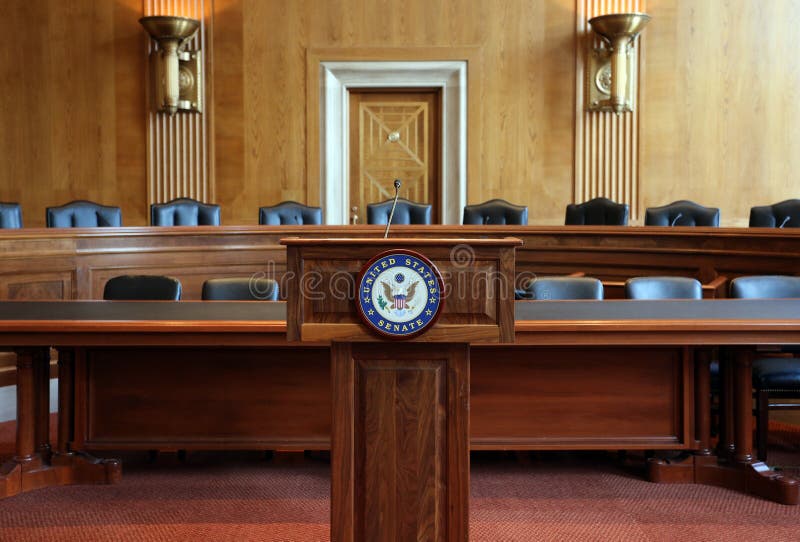
Musk's Presence at Air Force Secretary Interview Raises Alarm Over Defense Contracting Integrity
Musk's Presence at Air Force Secretary Interview Raises Alarm Over Defense Contracting Integrity
In an unprecedented entanglement of private interests and national security appointments, Elon Musk—whose company SpaceX holds billions in U.S. defense contracts—sat in on President Donald Trump's interview of Troy Meink, the nominee for Air Force Secretary. This extraordinary breach of traditional boundaries between government oversight and contractor influence has ignited a firestorm of bipartisan concern and triggered formal Senate inquiries into what critics call a dangerous precedent for Pentagon leadership selection.

"I've never seen anything like this before—a military contractor helping to select the leaders of the Pentagon," said Richard Painter, former chief White House ethics lawyer, in an interview with congressional investigators. "If Musk participated in the vetting of Meink, Meink would need to recuse himself from any matters involving Musk's companies."
A conflict of interest in government arises when a public official's personal interests, particularly financial ones as defined by statutes like 18 U.S.C. § 208, could potentially compromise their objectivity or improperly influence the performance of their official duties. US ethics rules are established to prevent officials from using their positions for personal gain, ensuring decisions prioritize the public interest.
The revelation came through Meink's own written responses to Congress, where he acknowledged Musk was "one of many" people present during his interview with President Trump. While Meink insisted that only the President directed questions to him and that Musk made no requests, the disclosure has set off alarm bells across Washington's oversight community and defense sector.
A Pipeline of Preferential Treatment?
The controversy extends beyond mere presence at an interview. Senators Elizabeth Warren and Tammy Duckworth have raised potentially more damaging allegations—that Meink may have steered a multibillion-dollar satellite contract toward SpaceX while serving as principal deputy director at the National Reconnaissance Office (NRO). Reports suggest Musk subsequently recommended Meink for the Air Force Secretary role, creating what ethics experts describe as an appearance of a quid pro quo arrangement that could fundamentally undermine fair competition in defense procurement.

"Musk's presence during Meink's interview was highly inappropriate, raising further questions about whether he selected Meink—and if so, why," Senator Warren said in a statement. "No one elected Musk to any position—he should not be involved in selecting our national security officials, particularly those who could allocate billions in taxpayer funds to him."
Inside defense industry circles, the development has sent tremors through the competitive landscape for military space contracts. A senior defense analyst who requested anonymity due to ongoing business relationships said: "We're looking at a potential reshuffling of billions in satellite and launch contracts if there's a formal ethics ruling that forces Meink to recuse himself from SpaceX-related decisions. The market is already pricing in this uncertainty."
Blurring Lines Between Public Service and Private Gain
What makes the situation particularly troubling to government watchdogs is Musk's expanding influence across multiple spheres of federal contracting and policy. SpaceX has secured hundreds of contracts worth billions in recent years, while simultaneously Musk has taken on government advisory roles and overseen significant federal budget decisions in other areas.
Estimated Growth of SpaceX Government Contract Awards from NASA and DoD (2015–2025).
| Year | NASA Contracts (Cumulative) | DoD Contracts (Cumulative) | Notable Awards & Milestones |
|---|---|---|---|
| 2015 | ~$2B | <$1B | Falcon 9 certified for NSSL; first DoD launches |
| 2018 | ~$4B | ~$1B | GPS III, NRO launches |
| 2020 | ~$8B | ~$2B | Major NSSL awards; ISS cargo/crew contracts |
| 2021 | ~$10B | ~$3B | Artemis lunar lander; spy satellite contracts |
| 2023 | ~$12B | ~$5B | NSSL Phase 2; ISS deorbit vehicle |
| 2024 | ~$13B+ | ~$6B | NRO satellite network; NSSL Phase 3 awards |
| 2025 | $14.6B (potential $56B) | $8B (potential $32.8B) | $5.9B Space Force contract; $560M YTD new awards |
Danielle Brian from the Project on Government Oversight warns that this concentration of power creates structural conflicts that extend beyond any single appointment. "When a private contractor with billions at stake helps select the very officials who will oversee those contracts, we've crossed a fundamental line in democratic governance," Brian explained. "The public needs confidence that national security decisions aren't being made to benefit private interests."
Behind closed doors, career civil servants at the Pentagon have expressed discomfort with what some see as an erosion of the firewall between contractors and government leadership selection. A former acquisition official who now works with several defense contractors noted: "The traditional arms-length relationship exists for a reason. When we blur those lines, it compromises the entire process—not just for competitors, but for taxpayers who fund these programs."
Senate Scrutiny Intensifies
The Senate Armed Services Committee has launched a deeper investigation into both Musk's role in the selection process and the alleged favoritism in prior contract awards. Senators Warren and Duckworth have demanded Meink provide additional disclosures about the NRO satellite contract and any communications regarding Musk's recommendation.

"These are incredibly serious allegations of misconduct and favoritism that could compromise fair contracting and Air Force priorities," the senators wrote in a joint letter to committee leadership. "The American people deserve to know whether their next Air Force Secretary passed a private contractor's job interview before facing Senate confirmation."
The controversy comes at a particularly sensitive time for military space procurement, with decisions pending on the massive Golden Dome missile shield initiative, where SpaceX is considered a frontrunner. Market analysts note that delays caused by ethics investigations could stall award processes, creating volatility in defense stocks and potentially reshaping the competitive landscape.
The Double-Edged Sword of Commercial Partnership
Supporters of closer integration between Silicon Valley innovators and defense capabilities argue that despite appearance issues, the expertise Musk brings to aerospace technology could accelerate the Air Force's modernization efforts. They point to SpaceX's history of undercutting traditional contractors on launch costs, potentially saving taxpayers billions if such efficiencies spread throughout military procurement.
The "revolving door" phenomenon in government contracting describes the movement of individuals between public service roles and private sector jobs, often within the same industry they regulated or contracted with. This practice frequently raises ethical concerns regarding potential conflicts of interest and the possibility of former officials leveraging their government connections, sometimes through lobbying, for private gain.
"There's a tension between maintaining ethical boundaries and leveraging commercial innovation," explained a former Air Force acquisition executive. "What's unusual here isn't that we're incorporating commercial partners—it's the direct role in personnel selection that crosses into territory we typically avoid."
Others see the controversy as illustrative of larger challenges in maintaining procurement integrity during an administration that has embraced unconventional contractors and public-private partnerships. The Trump administration has made no secret of its preference for business leaders who can disrupt traditional government processes, even as critics warn this approach risks undermining safeguards developed over decades.
Market Tremors and Investment Shifts
The disclosure has already triggered defensive positioning among investors in the aerospace and defense sector. Pure-play space stocks have experienced heightened volatility, with analysts predicting potential swings of 5-10% as contract timelines become less certain.
"We're seeing a flight to stability," noted a senior investment strategist at a major institutional fund. "Investors are rotating capital into diversified primes like Boeing and Lockheed Martin that might benefit if SpaceX faces disqualifications or delays on key programs. There's now a 'Musk factor' being priced into defense equities—essentially a risk premium reflecting the probability of legal challenges and Senate holdups."
Despite these headwinds, industry insiders acknowledge that SpaceX's technological advantages in areas like launch costs and satellite communications remain formidable. "Any market disruption is likely temporary," the investment strategist continued. "SpaceX's Starship architecture and Starlink network continue to outpace rivals on cost-effectiveness metrics that matter to military planners. The question is whether the governance concerns create enough friction to slow their momentum."
The Path Forward: Recusal or Rejection?
As Meink's nomination advances through the confirmation process, ethics experts have outlined several potential remedies. Richard Painter argues that if Musk had any role in selecting Meink, the nominee should recuse himself from all decisions involving SpaceX—a step that would significantly complicate Air Force operations given the company's growing portfolio of military programs.
Legislative reforms are also gaining momentum, with Senator Jeanne Shaheen advancing a conflict-of-interest bill aimed at tightening special-government-employee rules. The proposal would restrict external advisor roles for industry leaders and require fuller disclosure of private interests when interacting with government decision-makers.
The Department of Defense itself may institute additional oversight layers for high-value contracts to improve perceived fairness, though such measures would extend timelines for all contractors and potentially delay critical capabilities reaching warfighters.
As Washington grapples with these unprecedented questions of governance and oversight, the immediate future of billions in space and defense contracts hangs in the balance. Whatever the outcome, the controversy has permanently altered perceptions of the boundary between private sector innovation and public service integrity—a line that once crossed, proves difficult to redraw.